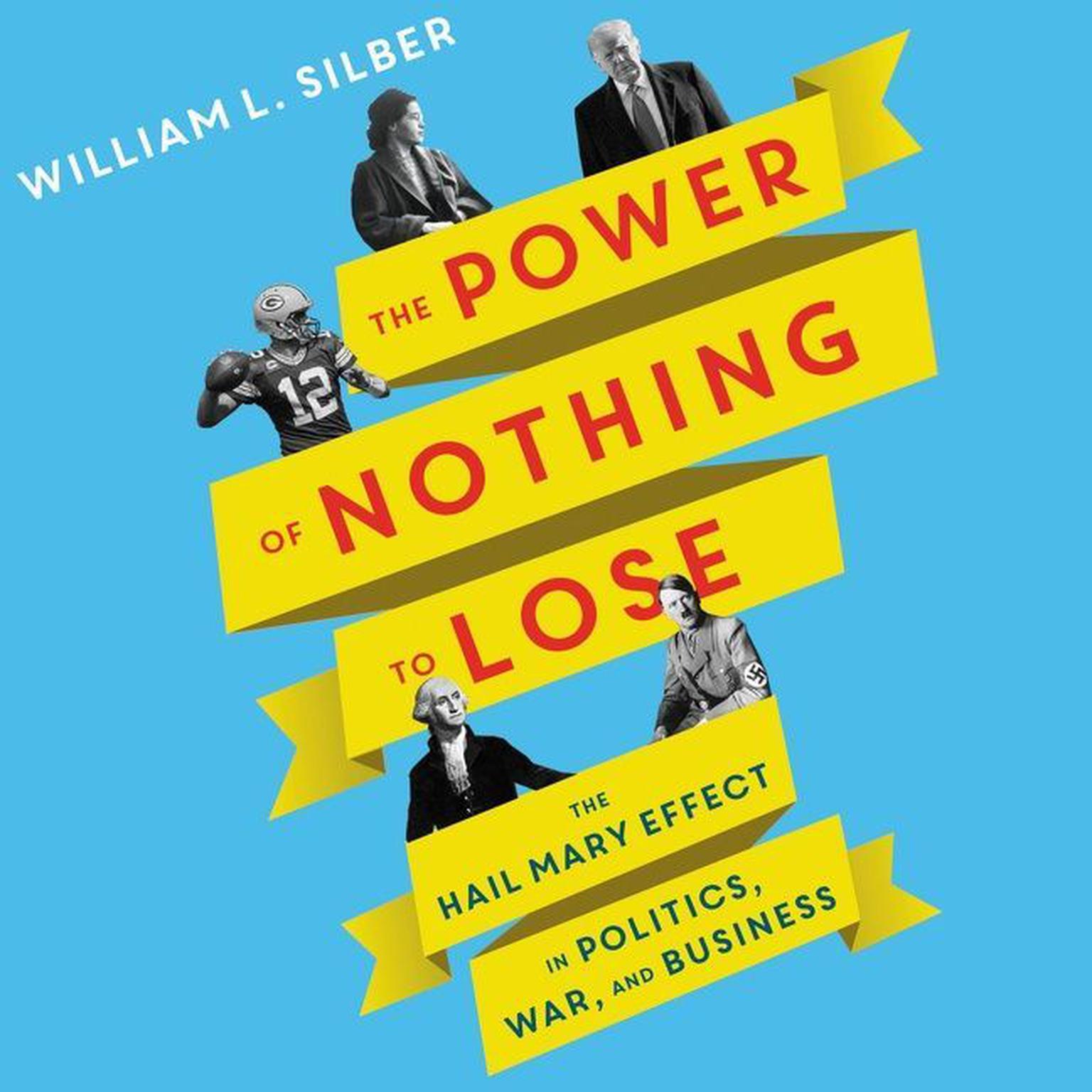 Play Audiobook Sample
Play Audiobook Sample
The Power of Nothing to Lose: The Hail Mary Effect in Politics, War, and Business Audiobook
 Play Audiobook Sample
Play Audiobook Sample
Quick Stats About this Audiobook
Total Audiobook Chapters:
Longest Chapter Length:
Shortest Chapter Length:
Average Chapter Length:
Audiobooks by this Author:
Publisher Description
Following books by Malcolm Gladwell and Dan Ariely, noted economics professor William L. Silber explores the Hail Mary effect, from its origins in sports to its applications to history, nature, politics, and business.
A quarterback like Green Bay’s Aaron Rodgers gambles with a Hail Mary pass at the end of a football game when he has nothing to lose -- the risky throw might turn defeat into victory, or end in a meaningless interception. Rodgers may not realize it, but he has much in common with figures such as George Washington, Rosa Parks, Woodrow Wilson, and Adolph Hitler, all of whom changed the modern world with their risk-loving decisions.
In The Power of Nothing to Lose, award-winning economist William Silber explores the phenomenon in politics, war, and business, where situations with a big upside and limited downside trigger gambling behavior like with a Hail Mary. Silber describes in colorful detail how the American Revolution turned on such a gamble. The famous scene of Washington crossing the Delaware on Christmas night to attack the enemy may not look like a Hail Mary, but it was. Washington said days before his risky decision, “If this fails I think the game will be pretty well up.” Rosa Parks remained seated in the white section of an Alabama bus, defying local segregation laws, an act that sparked the modern civil rights movement in America. It was a life-threatening decision for her, but she said, “I was not frightened. I just made up my mind that as long as we accepted that kind of treatment it would continue, so I had nothing to lose.”
The risky exploits of George Washington and Rosa Parks made the world a better place, but demagogues have inflicted great damage with Hail Marys. Towards the end of World War II, Adolph Hitler ordered a desperate counterattack, the Battle of the Bulge, to stem the Allied advance into Germany. He said, “The outcome of the battle would spell either life or death for the German nation.” Hitler failed to change the war’s outcome, but his desperate gamble inflicted great collateral damage, including the worst wartime atrocity on American troops in Europe.
Silber shares these illuminating insights on these figures and more, from Woodrow Wilson to Donald Trump, asylum seekers to terrorists and rogue traders. Collectively they illustrate that downside protection fosters risky undertakings, that it changes the world in ways we least expect.
Download and start listening now!
“Silber has a great eye for forces that have driven important decisions in history. This book weaves together gripping accounts of risky behavior by politicians, generals, and business leaders, and how they impacted society in surprising ways. I couldn’t put this book down.”
— Thomas J. Sargent, Nobel Laureate in Economics
The Power of Nothing to Lose Listener Reviews
Be the first to write a review about this audiobook!
About William L. Silber
William Silber is the Marcus Nadler Professor of Finance and Economics at New York University’s Stern School of Business and director of the Glucksman Institute for Research in Securities Markets. He is the author of several books, including When Washington Shut Down Wall Street and Volcker, an authorized biography of former Fed chairman Paul Volcker.
About Fred Sanders
Fred Sanders, an actor and Earphones Award–winning narrator, has received critics’ praise for his audio narrations that range from nonfiction, memoir, and fiction to mystery and suspense. He been seen on Broadway in The Buddy Holly Story, in national tours for Driving Miss Daisy and Big River, and on such television shows as Seinfeld, The West Wing, Will and Grace, Numb3rs,Titus, and Malcolm in the Middle. His films include Sea of Love, The Shadow, and the Oscar-nominated short Culture. He is a native New Yorker and Yale graduate.




